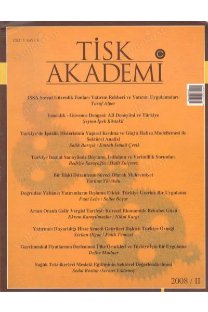Önceye etkili toplu iş sözleşmesinde üyelik aidatının işverence kesilmesi
Türk iş hukukunda, işçi sendikalarını mali yönden güçlü kılabilmek için, sendika üyelik aidatlarının işveren tarafından işçinin ücretinden kesilmesi (check-off) usulü benimsenmiştir. Buna göre, işveren, işyerinde uygulanan toplu iş sözleşmesinin tarafı olan işçi sendikasının, toplu iş sözleşmesi henüz yapılmamışsa veya sona ermişse yetki belgesi alan işçi sendikasının yazılı talebi ve aidatı kesilecek sendika üyesi işçilerin listesini vermesi üzerine, üyelik aidatlarını işçilere yapacağı ücret ödemelerinden kesmek ve aidat tutarını ilgili sendikaya vermek zorundadır. Böylece, işverenin aidat kesme yükümü, en erken yetki belgesinin alınması tarihinden itibaren ortaya çıkmaktadır. Ancak, bu esas, süresi bitecek toplu iş sözleşmesinin yerine aynı işçi sendikasının yeni toplu iş sözleşmesini yaptığı ve toplu iş sözleşmesinin yürürlük süresinin önceki toplu iş sözleşmesinin bitimi tarihine çekildiği hallerde, toplu sendika özgürlüğünü tehdit edici boyutlara ulaşabilmektedir. Bu konuda, yasal bir örtülü boşluğun varlığı kabul edilmeli ve işverenin aidat kesme yükümünün, önceki toplu iş sözleşmesinin bitimi tarihi ile yetki belgesinin alındığı tarih arasındaki dönem için de devam ettiği kabul edilmek suretiyle, söz konusu boşluk doldurulmalıdır.
Check-off mechanism of membership dues by an retroactive collective agreement
In order to enhance labor unions financially, the check-off method is adopted under the Turkish Labor Law, which purports to deducing the labor union membership dues from the wages of employees by their respective employers. Accordingly, the employer is obliged to cut off the workers’ membership dues from their wages and hand in the due amount to the relevant labor union, upon the written request of that union, and subsequent to the union’s submission of the workers’ list whose wages are to be deduced. Such a labor union may either be a party to the collective labor agreement applicable at the establishment or have obtained an authorization certificate, in case the agreement has expired, or has not been concluded, yet. With this respect, the employer’s obligation to deduce the membership due arises at the time the authorization certificate is obtained, at earliest. However, this principle may interfere with the collective right to freedom of association, in cases whereby the relevant trade union concludes a new collective labor agreement in place of the one that will expire, and the new collective labor agreement is designated to come into force as of the expiration date of the former. It should be acknowledged that there is a tacit lacuna in the regulation with regard to this issue. This gap is to be filled by presuming that the employer’s obligation to deduce the membership due prevails during the time period between the date of expiration of the former collective labor agreement and the date of the acquisition of the authorization certificate.
___
- Aybay, A. ve Aybay, R. (2000). Hukuka Giriş. İstanbul: Aybay Yayınları Eyrenci, Ö. (1984). Sendikalar Hukuku. İstanbul: Banka ve Sigorta İşçileri Sendikası Yayını
- Narmanlıoğlu, Ü. (2001). İş Hukuku II: Toplu İş İlişkileri. İzmir: Dokuz Eylül Üniversitesi Yayını
- Oğuzman, K. (1987). Hukuki Yönden İşçi- İşveren İlişkileri. İstanbul: İstanbul Üniversitesi İşletme İktisadı Enstitüsü Yayını
- Sur, M. (2011). İş Hukuku Toplu İlişkiler. Ankara: Turhan Kitabevi
- Şahlanan, F. (1995). Sendikalar Hukuku. İstanbul: Yılmaz Ajans
- Tuncay, A. C. (2010). Toplu İş Hukuku. İstanbul: Beta Yayınevi
